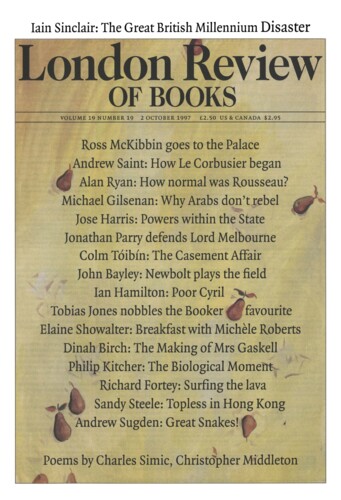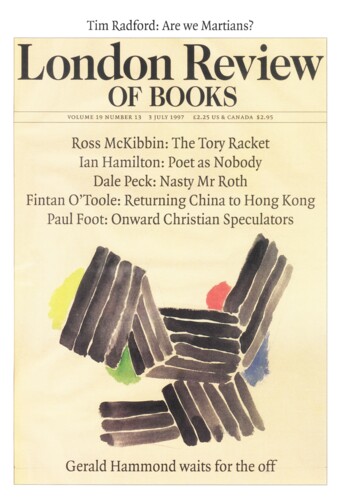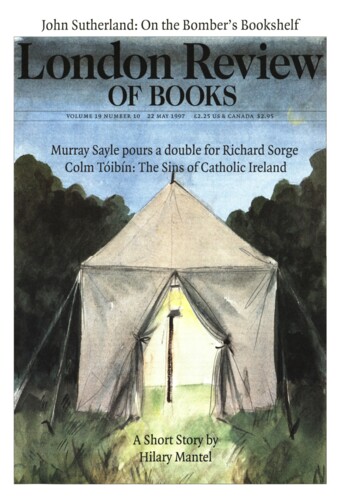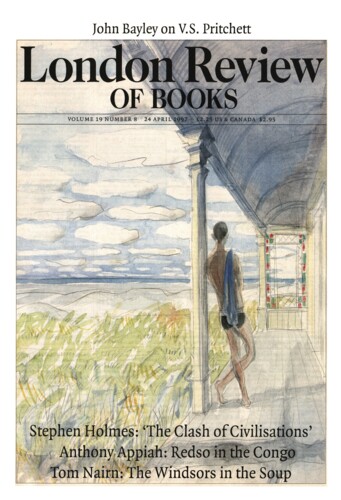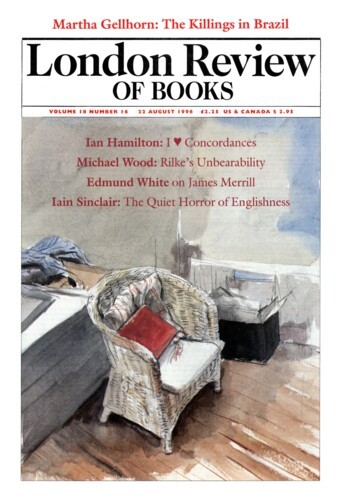The least you can do is read it
Ian Hamilton, 2 October 1997
Cyril Connolly is famous now, and was famous in his lifetime, for not having written a masterpiece. A peculiar sort of fame: after all, many thousands of literary persons share the same distinction. Connolly, though, made a career out of insisting that his failure had a special poignancy, a poignancy which we should all attend to.
